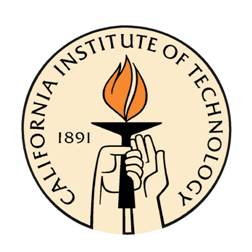Rankings were based on the results of surveys sent to academics in computer science, mathematics, and physics during the fall of 2007, in biological sciences and chemistry during fall 2006, and in other fields during fall 2005. The individuals rated the quality of the program at each institution from "marginal" (1) to "outstanding" (5). The schools with the highest average scores among those who rated them were the sorted in descending order and published.
Schools were ranked across six high-level disciplines of science, although not all schools were necessarily submitted for evaluation in all disciplines. The six specialties were: Biological Sciences, Chemistry, Computer Science, Earth Science, Mathematics, and Physics. In addition, schools were evaluated and ranked on particular programs within each science, such as theoretical chemistry and nuclear physics.
So who came out on top? Several universities had a strong showing in one particular science specialty, but the top schools demonstrated high performance in multiple disciplines. Which schools scored the highest across all specialties? Here is the countdown of the top 10:
10. (tie) Yale University: New Haven, CT
University of Wisconsin: Madison, WI
 Yale University - Combined Ranking: 25.2
Yale University - Combined Ranking: 25.2Biological Sciences: 4.5 (Ranked 7th)
Chemistry: 4.1 (Ranked 15th)
Computer Science: 3.7 (Ranked 20th)
Earth Sciences: 4.0 (Ranked 11th)
Mathematics: 4.6 (Ranked 7th)
Physics: 4.3 (Ranked 11th)
 University of Wisconsin, Madison – Combined Ranking: 25.2
University of Wisconsin, Madison – Combined Ranking: 25.2Biological Sciences: 4.3 (Ranked 15th)
Chemistry: 4.5 (Ranked 7th)
Computer Science: 4.2 (Ranked 11th)
Earth Sciences: 3.9 (Ranked 15th)
Mathematics: 4.2 (Ranked 14th)
Physics: 4.1 (Ranked 16th)
9. University of Michigan: Ann Arbor, MI
 University of Michigan, Ann Arbor – Combined Ranking: 25.4
University of Michigan, Ann Arbor – Combined Ranking: 25.4Biological Sciences: 4.3 (Ranked 15th)
Chemistry: 4.0 (Ranked 16th)
Computer Science: 4.0 (Ranked 13th)
Earth Sciences: 4.4 (Ranked 5th)
Mathematics: 4.5 (Ranked 9th)
Physics: 4.2 (Ranked 13th)
8. Columbia University: New York, NY
 Columbia University – Combined Ranking: 25.7
Columbia University – Combined Ranking: 25.7Biological Sciences: 4.3 (Ranked 15th)
Chemistry: 4.3 (Ranked 11th)
Computer Science: 3.9 (Ranked 16th)
Earth Sciences: 4.4 (Ranked 5th)
Mathematics: 4.5 (Ranked 9th)
Physics: 4.3 (Ranked 11th)
7. Cornell University: Ithaca, NY
 Cornell University – Combined Ranking: 26.2
Cornell University – Combined Ranking: 26.2Biological Sciences: 4.4 (Ranked 12th)
Chemistry: 4.4 (Ranked 9th)
Computer Science: 4.5 (Ranked 6th)
Earth Sciences: 3.9 (Ranked 15th)
Mathematics: 4.3 (Ranked 13th)
Physics: 4.7 (Ranked 7th)
6. Princeton University: Princeton, NJ
 Princeton University – Combined Ranking: 26.8
Princeton University – Combined Ranking: 26.8Biological Sciences: 4.4 (Ranked 12th)
Chemistry: 4.0 (Ranked 16th)
Computer Science: 4.5 (Ranked 6th)
Earth Sciences: 4.0 (Ranked 11th)
Mathematics: 5.0 (Ranked 1st)
Physics: 4.9 (Ranked 3rd)
5. Harvard University: Boston, MA
 Harvard University – Combined Ranking: 27.3
Harvard University – Combined Ranking: 27.3Biological Sciences: 4.7 (Ranked 4th)
Chemistry: 4.8 (Ranked 5th)
Computer Science: 3.9 (Ranked 16th)
Earth Sciences: 4.1 (Ranked 9th)
Mathematics: 4.9 (Ranked 2nd)
Physics: 4.9 (Ranked 3rd)
4. California Institute of Technology: Pasadena, CA
 California Institute of Technology – Combined Ranking: 28.2
California Institute of Technology – Combined Ranking: 28.2Biological Sciences: 4.7 (Ranked 4th)
Chemistry: 4.9 (Ranked 1st)
Computer Science: 4.2 (Ranked 11th)
Earth Sciences: 4.9 (Ranked 1st)
Mathematics: 4.6 (Ranked 7th)
Physics: 4.9 (Ranked 3rd)
3. University of California: Berkeley, CA
 University of California, Berkeley – Combined Ranking: 29.1
University of California, Berkeley – Combined Ranking: 29.1Biological Sciences: 4.8 (Ranked 2nd)
Chemistry: 4.9 (Ranked 1st)
Computer Science: 5.0 (Ranked 1st)
Earth Sciences: 4.6 (Ranked 4th)
Mathematics: 4.9 (Ranked 2nd)
Physics: 4.9 (Ranked 3rd)
2. Massachusetts Institute of Technology – Cambridge, MA
 Massachusetts Institute of Technology – Combined Ranking: 29.4
Massachusetts Institute of Technology – Combined Ranking: 29.4Biological Sciences: 4.8 (Ranked 2nd)
Chemistry: 4.9 (Ranked 1st)
Computer Science: 5.0 (Ranked 1st)
Earth Sciences: 4.8 (Ranked 2nd)
Mathematics: 4.9 (Ranked 2nd)
Physics: 5.0 (Ranked 1st)
1. Stanford University – Stanford, CA
 Stanford University – Combined Ranking: 29.5
Stanford University – Combined Ranking: 29.5Biological Sciences: 4.9 (Ranked 1st)
Chemistry: 4.9 (Ranked 1st)
Computer Science: 5.0 (Ranked 1st)
Earth Sciences: 4.8 (Ranked 2nd)
Mathematics: 4.9 (Ranked 2nd)
Physics: 5.0 (Ranked 1st)
There you have it – the top 10 graduate schools with the strongest showing in science. If you’re interested in seeing who almost made the cut, take a look at the table below. And if you want to take an in-depth look at all of the rankings, be sure to check out the original US News&World Report article.
As we all know however, it's one thing to have an education in science - and another thing to be able to apply the science you've learned and communicate it to others. So, based on those criteria, who among these top 10 universities really "knows" their science? That's a great question, on one that we here at Scientific Blogging are eager to find out. Stay tuned...
*UPDATE*
We've just announced our University Science Writing Competition between these "Top 10" universities. If you are a grad student currently attending one of these fine institutions, check out the link to find out how you could potentially win our $2,500 Cash Grand Prize!






Comments